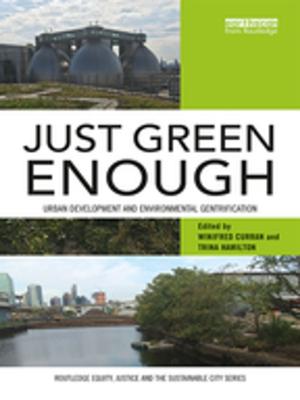| Author: | Frank Musgrove | ISBN: | 9780429639197 |
| Publisher: | Taylor and Francis | Publication: | March 4, 2019 |
| Imprint: | Routledge | Language: | English |
| Author: | Frank Musgrove |
| ISBN: | 9780429639197 |
| Publisher: | Taylor and Francis |
| Publication: | March 4, 2019 |
| Imprint: | Routledge |
| Language: | English |
‘Psychologists have mapped out developmental stages for the first fifteen to twenty years; but thereafter life is a blank. Half a century of adult life remains, psychologically speaking, an unchartered waste.’ Frank Musgrove focuses on the question ‘Can adults change?’ and challenges the still widely-held view that adult life is static.
Originally published in 1977, the author examines change principally in terms of a modification of consciousness through the experience of marginality. With the help of interviews, he discusses seven groups in contemporary Britain at the time, found in the ‘margins’ of society. Three of the selected groups are involuntary and stigmatized: men and women who have gone blind as adults; handicapped people in a home for the incurably disabled; and homosexuals. The other four groups enjoy high-status and voluntary marginality: late-entrants to the Anglican ministry; self-employed artists; a Sufi commune of Islamic mystics; and a Hare Krishna commune.
Frank Musgrove’s lively study of adult resocialization will be of interest to sociologists, anthropologists and anyone concerned with the general problem of adjustment to rapid social change. It also relates marginality to the issue of life-long learning and points to some of the creative possibilities of the marginal situation.
‘Psychologists have mapped out developmental stages for the first fifteen to twenty years; but thereafter life is a blank. Half a century of adult life remains, psychologically speaking, an unchartered waste.’ Frank Musgrove focuses on the question ‘Can adults change?’ and challenges the still widely-held view that adult life is static.
Originally published in 1977, the author examines change principally in terms of a modification of consciousness through the experience of marginality. With the help of interviews, he discusses seven groups in contemporary Britain at the time, found in the ‘margins’ of society. Three of the selected groups are involuntary and stigmatized: men and women who have gone blind as adults; handicapped people in a home for the incurably disabled; and homosexuals. The other four groups enjoy high-status and voluntary marginality: late-entrants to the Anglican ministry; self-employed artists; a Sufi commune of Islamic mystics; and a Hare Krishna commune.
Frank Musgrove’s lively study of adult resocialization will be of interest to sociologists, anthropologists and anyone concerned with the general problem of adjustment to rapid social change. It also relates marginality to the issue of life-long learning and points to some of the creative possibilities of the marginal situation.















